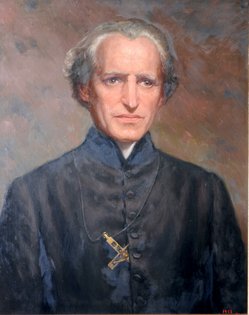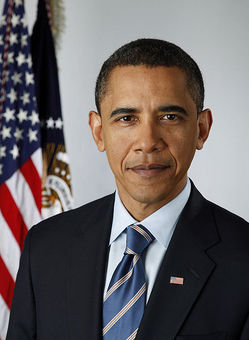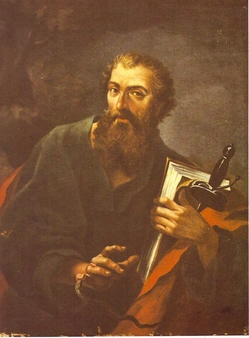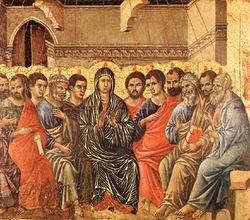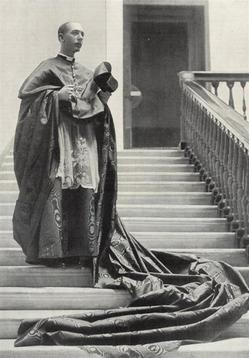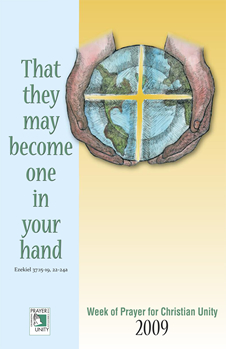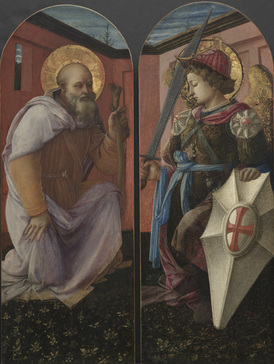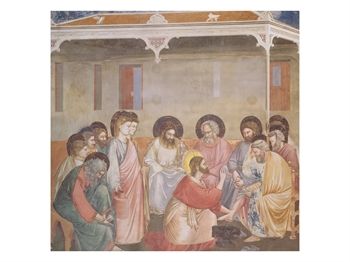Last evening (19 January) two participants in the October 2008 Synod of Bishops spoke about the importance and value of knowing Christ personally and intimately. Christ is not an abstraction nor is Christianity an ethic. Merely knowing about Jesus is moralistic and inconsistent with the true experience of Christinity which says that Jesus Christ is the true, personal foundation of life and that He answers the need of heart. Father Julián Carrón, President of the Fraternity of Communion & Liberation and Mr. Carl Anderson, Supreme Knight of the Knights of Columbus addressed a crowd of more than 200 people, including the Most Reverend Peter A. Rosazza, an auxiliary bishop of Hartford and Vicar for New Haven, CT. The evening was moderated by Dominican Father Peter John Cameron, Editor-in-Chief of Magnificat magazine.
The discussion was built on the theme “The Word’s Face: The Word of God in the Life and Mission of Every Believer.” Saint Mary’s Church Hall (New Haven, CT) was the venue of the evening. This was the same hall that the Venerable Servant of God Michael J. McGivney founded the Knights of Columbus in 1882.
The discussion emphasized that Christians are not a people of the Book, as is commonly but wrongly asserted, but a people who follow a person, the definitive revelation of God, Jesus Christ. Moreover, it was emphasized that Catholics know Christ through sacred Scripture and Tradition. Anderson made a point in saying that he had heard a story of someone facing imprisonment who given a choice in taking one book with him and he selected the missal. The reasoning was the missal had both Scripture and the Liturgy. Both Anderson and Carrón dealt with various aspects of Dei Verbum, the revolutionary document on Divine Revelation from the Second Vatican Council. Anderson made a point that the Church is missionary in sharing the faith with others and noted that Pope Paul VI, Pope John Paul II and Pope Benedict XVI have made the effective preaching of Jesus Christ a particularly important aim of the entire Church, each according to his or her place in the Body of Christ.
Father Julián Carrón was an Ordinary member of the Synod meaning that he was a full and voting participant in the Synod as the bishops who are appointed to the gathering. Father Carrón’s Synodal intervention can be read here. Mr. Anderson was an auditor at the Synod meaning that he was a partial participant at the Synod but less important as his role was to listen to the work of the Synodal Fathers, to meet experts and those participating in the Synod and to make brief intervention before the full body of the Synod. Both have participated in previous Synods of Bishops.
Father Carrón and Mr. Anderson answered questions fielded from the audience and afterwards met with anyone who presented themselves. Father Carrón met very briefly with members of the local members of the Communion & Liberation. The event was an experience of Christ among us.
The evening was sponsored by Communion & Liberation of Connecticut, the Supreme Council of the Knights of Columbus and Saint Mary’s Church & Priory.
A brief article and video of the panel discussion can be found here.
